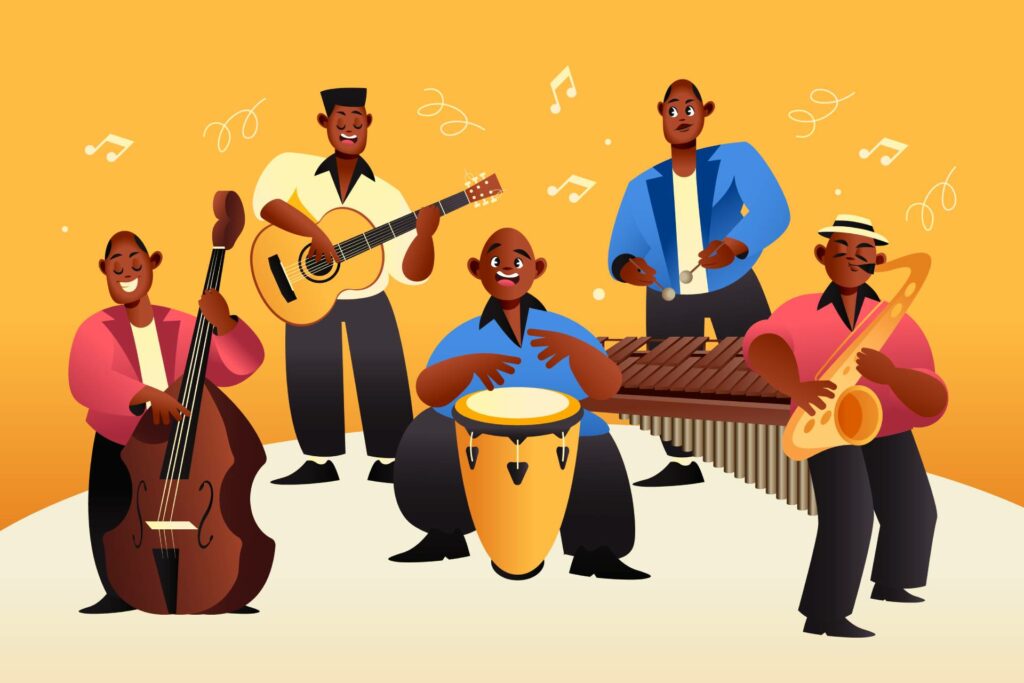The Global Appeal of Afrobeat
Afrobeat, a genre that blends traditional African rhythms with elements of jazz, funk, and highlife, has become a global sensation. Originating in Nigeria in the late 1960s, this vibrant and dynamic musical style has transcended its roots to captivate audiences worldwide.
The genre's infectious rhythms, socially conscious lyrics, and innovative fusion of sounds have contributed to its broad appeal.
This article explores the rise of Afrobeat, its cultural impact, and the reasons behind its widespread popularity.
The Origins of Afrobeat: A Cultural and Musical Revolution

Birth of a Genre
Afrobeat was pioneered by the legendary Nigerian musician Fela Kuti, who is often regarded as the "Father of Afrobeat."
Combining traditional Yoruba music with jazz, highlife, funk, and political activism, Fela Kuti created a unique sound that was both a form of entertainment and a medium for social commentary.
His band, Africa '70, played a crucial role in developing the Afrobeat sound, characterized by intricate rhythms, powerful horn sections, and call-and-response vocals.
Cultural Context and Influence
Afrobeat emerged during a time of significant political and social upheaval in Nigeria. The genre's lyrics often addressed issues such as corruption, inequality, and human rights, resonating with audiences both locally and globally.
Fela's music became a voice for the voiceless, challenging oppressive regimes and advocating for social change.
This blend of music and activism helped Afrobeat gain a loyal following and cemented its status as a powerful cultural force.
The Evolution of Afrobeat: From Local to Global
Expanding Beyond Nigeria
While Afrobeat originated in Nigeria, it quickly spread to other parts of Africa and beyond. The genre's infectious rhythms and universal themes made it accessible to a wide range of listeners.
As Nigerian artists traveled and performed internationally, Afrobeat gained exposure and began to influence musicians worldwide. This cross-cultural exchange enriched the genre, incorporating new sounds and styles while maintaining its core elements.
The Role of Modern Artists
In recent years, a new generation of artists has further popularized Afrobeat on the global stage. Musicians like Burna Boy, Wizkid, and Tiwa Savage have achieved international acclaim, bringing Afrobeat to mainstream audiences.
Collaborations with Western artists and the integration of contemporary pop and electronic elements have broadened the genre's appeal. This fusion has allowed Afrobeat to remain relevant and continue evolving in the global music landscape.
The Cultural Impact of Afrobeat
A Voice for Social Justice
Afrobeat has always been more than just music; it is a platform for social and political expression. The genre has a long history of addressing issues such as poverty, corruption, and injustice.
Artists use their music to raise awareness, inspire action, and foster solidarity. This tradition of activism has contributed to Afrobeat's enduring relevance, as it resonates with listeners who seek both entertainment and enlightenment.
Celebrating African Identity
Afrobeat has played a significant role in celebrating and promoting African culture. The genre's incorporation of traditional African rhythms, languages, and themes has helped preserve and elevate African heritage. It has also challenged stereotypes and offered a more nuanced portrayal of African life.
Through its global reach, Afrobeat has fostered a greater appreciation for African music, art, and culture, influencing perceptions and breaking down cultural barriers.
The Future of Afrobeat: Sustaining Global Popularity
Technological Advancements and Accessibility
The rise of digital media and streaming platforms has made Afrobeat more accessible than ever before. These technologies have enabled artists to reach a global audience without the need for traditional gatekeepers.
Social media platforms also play a crucial role in promoting Afrobeat, allowing fans to connect with artists and share their music widely. This increased accessibility has contributed to the genre's sustained growth and popularity.
The Continued Evolution of Afrobeat
As Afrobeat continues to evolve, it is likely to incorporate new influences and styles. The genre's openness to experimentation and fusion has been a key factor in its success. Future developments may see further collaborations across genres and cultures, as well as the emergence of new subgenres within Afrobeat. This dynamic evolution ensures that Afrobeat will remain a vibrant and relevant part of the global music scene.
Conclusion
Afrobeat's global appeal is a testament to its unique blend of musical innovation, cultural richness, and social consciousness. From its roots in Nigeria to its current status as a worldwide phenomenon, Afrobeat has captivated audiences with its infectious rhythms and powerful messages. The genre's ability to adapt and evolve, while remaining true to its core identity, has ensured its continued relevance and popularity. As Afrobeat continues to inspire and influence musicians and listeners alike, it stands as a powerful example of music's ability to transcend borders and bring people together.
References
- BBC - Fela Kuti: The Father of Afrobeat
- The Guardian - How Fela Kuti's Afrobeat Changed the Sound of Africa
- The New York Times - The Globalization of Afrobeat







































